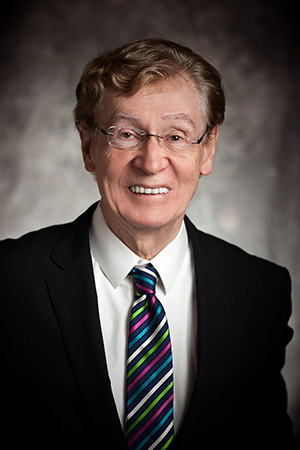Richard Driehaus Has Died at Age 78


By GINNY VAN ALYEA
Richard H. Driehaus, Chicago investment titan, philanthropist, and party planner extraordinaire, has died. He was 78.
Driehaus was a rescuer of historic and beautiful treasures. He even made a sort of time–travel possible for many when his namesake museum opened more than 12 years ago, with a mission to explore the art, architecture, and design of the late 19th and early 20th centuries and a focus on the Gilded Age. The Museum, located within the meticulously restored 1883 Nickerson Mansion, was Gilded Age Chicago’s “Marble Palace.” Period pieces from the Driehaus Collection, rotating exhibitions and cultural programs further illuminate the era.
When the museum first opened its doors – following a top to bottom rescue from 2003–2008 to make up for decades of grime and neglect – the Driehaus quickly established itself as a unique addition to Chicago's cultural community. What at first was a restored jewel box that made the case for historic preservation in the heart of one of the world's centers for modern architecture, eventually matured into an immersive visual time machine.
Visitors to the museum, hidden just off of the city's busiest tourist highway, the Magnificent Mile, are able to experience another era as soon as they climb the museum's limestone steps and enter its stained glass doors. As they climb three levels of carpeted stairs and wander room to room they behold countless prime examples of furniture and decoration from the 19th century. Today the Driehaus's line up of period-relevant exhibitions provides additional context as well as opportunities to visit again and again.
Driehaus began collecting decorative arts in the 1970, and his personal collections ranged from American masters like Tiffany and the Herter Brothers; to Hector Guimard and Alfonse Mucha, at the pinnacle of French art nouveau; to Weiner Werkstatte’s Josef Hoffmann and Koloman Moser….and to classic American automobiles. Among his greatest pleasures was sharing his collections with the public. He is also a philanthropist who supported historic preservation, modern classical architecture, arts, culture, democracy and economic opportunity through the Richard H. Driehaus Foundation
This past fall, in advance of the opening of A Tale of Today: Nate Young and Mika Horibuchi, a contemporary exhibition at the museum featuring site-specific works by Chicago artists Nate Young and Mika Horibuchi, Mr. Driehaus shared with us that he hoped to reach new audiences by giving them a chance to view the Gilded Age’s legacy through new perspectives and connect the abundant history of the Nickerson Mansion with our current times. He said the new series could “demonstrate the importance of architecture and sense of place from the incomparable vantage point of the Nickerson Mansion, while also showcasing new artists in this historical setting.”
Outside of business, Driehaus focused his attention and energy on a variety of philanthropic and community service-oriented projects, individually and through the efforts of The Richard H. Driehaus Foundation and the Richard H. Driehaus Charitable Trusts.
The Richard H. Driehaus Foundation National Preservation Awards also celebrate the best of the best in historic preservation, adaptive reuse, and the re-imagining of historic buildings for the future. They are a part of the National Preservation Awards, which are presented annually at the PastForward conference. The coveted Driehaus Awards are bestowed on distinguished individuals, nonprofit organizations, public agencies, and corporations whose skill and determination have given new meaning to communities by preserving their architectural and cultural heritage. The Driehaus Awards recognize efforts such as citizens saving and maintaining important landmarks, companies and craftsmen restoring the richness of the past, public officials supporting preservation projects and legislation in their communities, and educators and journalists helping Americans understand the value of preservation.
Mr. Driehaus used his eye and passion to carefully and respectfully ensure that objects and buildings from the past may continue to be appreciated in the future. What he sought to collect and preserve will undoubtedly be enjoyed for generations to come.






